
La vuelta al nido is a 1938 Argentine psychological drama film written and directed by Leopoldo Torres Ríos and starring José Gola and Amelia Bence.
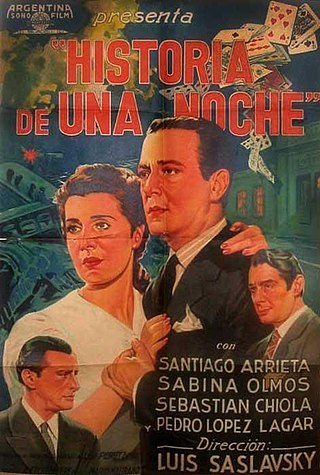
Historia de una noche is a 1941 Argentine film directed by Luis Saslavsky.

The Phantom Lady is a 1945 Argentine film directed by Luis Saslavsky. At the 1946 Argentine Film Critics Association Awards the film won Silver Condor Awards for Best Film, Best Director, Best Adapted Screenplay and Best Music. It is based on a seventeenth-century comedy with the same name by Pedro Calderón de la Barca, translated as The Phantom Lady. However, the film alters the play considerably - the plot is heavily rewritten, and the style of dialogue is completely changed. Calderon's comedy is written in verse, while the screenplay of the film is in prose and contains scenes not found in the play. The final scene includes a fierce storm from which the hero rescues the heroine and declares his love for her, a scene added to the film.
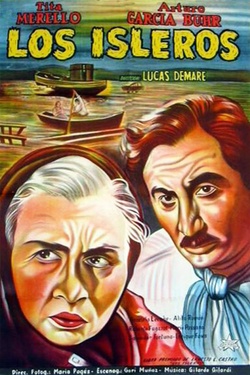
Los isleros is a 1951 Argentine film directed by Lucas Demare. It was entered into the 1951 Cannes Film Festival. It won the Silver Condor Award for Best Film.
La caída is a 1959 Argentine drama film directed by Leopoldo Torre Nilsson. It won the Silver Condor Award for Best Film was entered into the 9th Berlin International Film Festival.
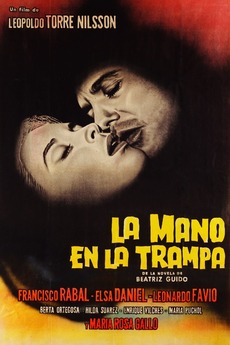
The Hand in the Trap is a 1961 Argentine film directed by Leopoldo Torre Nilsson and starring Francisco Rabal, Elsa Daniel and Leonardo Favio. It was entered into the 1961 Cannes Film Festival, where it won the FIPRESCI Prize.

Este es el romance del Aniceto y la Francisca, de cómo quedó trunco, comenzó la tristeza y unas pocas cosas más…, or simply El Romance del Aniceto y la Francisca, is a 1967 Argentine romantic drama film directed and written by Leonardo Favio, based on the short story El cenizo by Jorge Zuhair Jury, Favio's older brother. The film stars Federico Luppi, Elsa Daniel, María Vaner and Edgardo Suárez.
Brief Heaven is a 1969 Argentine film directed by David José Kohon. It was entered into the 6th Moscow International Film Festival where Ana María Picchio won the award for Best Actress.
Heartbreak Tango is a 1974 Argentine drama film, directed by Leopoldo Torre Nilsson.

Gatica, el mono is a 1993 Argentine drama film directed by Leonardo Favio. It is a biopic of Argentine boxer José María Gatica.
It won the Silver Condor for Best Film. The film was selected as the Argentine entry for the Best Foreign Language Film at the 66th Academy Awards, but Leonardo Favio asked the Instituto Nacional de Cinematografía (INC) to remove it as a nominee in order to protest in delays of the Congress' approval of the Foreign Films taxes.
Shunko is a 1960 Argentine film directed by Lautaro Murúa. It won the Silver Condor Award for Best Film.
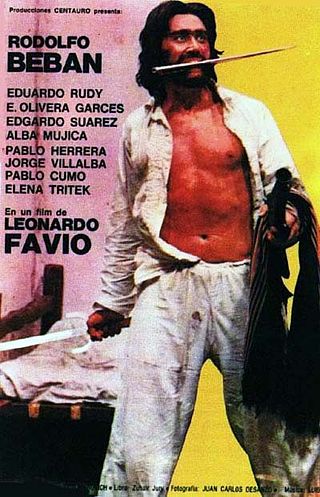
Juan Moreira is a 1973 Argentine dramatic historical film directed by Leonardo Favio and starring Rodolfo Bebán. It is based on the homonymous novel by Eduardo Gutiérrez, which narrates the life of the famous Argentine outlaw, gaucho and folk hero Juan Moreira.

Pajarito Gómez is a 1965 Argentine comedy film directed by Rodolfo Kuhn. It was entered into the 15th Berlin International Film Festival. It was also selected as the Argentine entry for the Best Foreign Language Film at the 38th Academy Awards, but was not accepted as a nominee. The film is a satire of the promotional machine behind the Argentine pop stars of the 1960s.
La muerte camina en la lluvia is a 1948 Argentine suspense film directed by Carlos Hugo Christensen and based upon the novel L'assassin habite au 21 written by Stanislas-André Steeman. It was premiered on September 7, 1948.
Last Days of the Victim is a 1982 Argentine crime thriller film directed by Adolfo Aristarain and starring Federico Luppi. It was written by Aristarain and José Pablo Feinmann, and based on Feinmann's classic novel of the same name. The film was selected as the Argentine entry for the Best Foreign Language Film at the 55th Academy Awards, but was not accepted as a nominee.

Safo, historia de una pasión is a 1943 Argentine erotic melodrama film directed by Carlos Hugo Christensen and starring Mecha Ortiz and Roberto Escalada. At the 1944 Argentine Film Critics Association Awards, Ortiz won the Silver Condor Award for Best Actress for her performance as Selva in the film.
Savage Pampas is a 1945 Argentine historical film directed by Lucas Demare and Hugo Fregonese and starring Francisco Petrone, Luisa Vehil and Domingo Sapelli. The film's sets were designed by Germán Gelpi. The film is set in the nineteenth century in the Dry Pampas, when it represented a frontier between Argentinian-controlled territory and areas still largely inhabited by Indians before the Conquest of the Desert extended Argentine control southwards. In 1966, Fregonese remade the film in English under the same title.

The Naked Angel is a 1946 Argentine drama film directed by Carlos Hugo Christensen and starring Olga Zubarry, Guillermo Battaglia and Carlos Cores. The film is based on the novella Fräulein Else by Arthur Schnitzler. The director, Christensen, had gained a reputation for exploring more sexual themes in his films than was traditional in Argentine cinema at the time.

La fuga is a 1937 Argentine drama film directed by Luis Saslavsky and starring Santiago Arrieta.
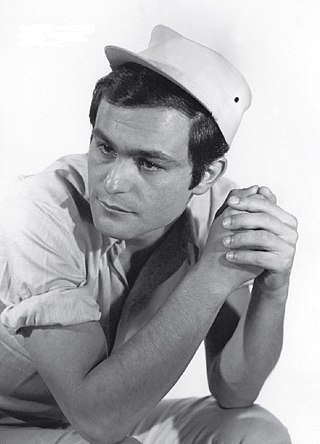
The 100 Greatest Films of Argentine Cinema, also known as the Survey of Argentine cinema, are a series of opinion polls carried out to establish a list of the greatest films of Argentine cinema of all time. The original survey was carried out by the Museo del Cine Pablo Ducrós Hicken in the years 1977, 1984, 1991 and 2000. In 2022, a new edition was held, organized by the film magazines La vida útil, Taipei and La tierra quema, with support from INCAA, the Mar del Plata International Film Festival, the FestiFreak International Film Festival of La Plata, the Casa de la Cultura of General Roca and the Museo del Cine Pablo Ducrós Hicken.












